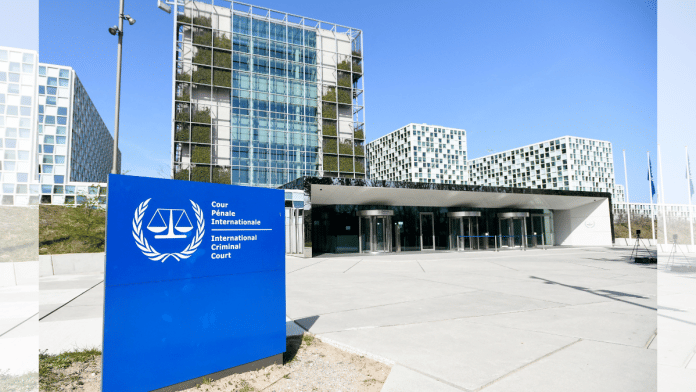Washington: President Donald Trump’s administration on Wednesday imposed sanctions on two judges and two prosecutors at the International Criminal Court, as Washington ramped up its pressure on the war tribunal over its targeting of Israeli leaders and a past decision to investigate U.S. officials.
In a statement, U.S. Secretary of State Marco Rubio called the court “a national security threat that has been an instrument for lawfare” against the United States and Israel.
The Reuters Daily Briefing newsletter provides all the news you need to start your day.
The move drew ire from France and the United Nations. Paris urged Washington to withdraw the sanctions, while the ICC said it deplored the designations, calling them “a flagrant attack” against the independence of an impartial judicial institution.
Washington designated Nicolas Yann Guillou of France, Nazhat Shameem Khan of Fiji, Mame Mandiaye Niang of Senegal, and Kimberly Prost of Canada, according to the U.S. Treasury and State Department. All officials have been involved in cases linked to Israel and the United States.
“United States has been clear and steadfast in our opposition to the ICC’s politicization, abuse of power, disregard for our national sovereignty, and illegitimate judicial overreach,” Rubio said.
“I urge countries that still support the ICC, many of whose freedom was purchased at the price of great American sacrifices, to resist the claims of this bankrupt institution.”
The second round of sanctions comes less than three months after the administration took the unprecedented step of slapping sanctions on four separate ICC judges. The escalation will likely impede the functioning of the court and the prosecutor’s office as they deal with major cases, including war crime allegations against Russia over its invasion of Ukraine.
ICC judges issued arrest warrants for Israeli Prime Minister Benjamin Netanyahu, former Israeli defense chief Yoav Gallant, and Hamas leader Ibrahim al-Masri last November for alleged war crimes and crimes against humanity during the Gaza conflict.
In March 2020, prosecutors opened an investigation in Afghanistan that included looking into possible crimes by U.S. troops, but since 2021, it has deprioritized the role of the U.S. and focused on alleged crimes committed by the Afghan government and the Taliban forces.
The ICC, which was established in 2002, has international jurisdiction to prosecute genocide, crimes against humanity, and war crimes in member states or if a situation is referred by the U.N. Security Council.
Although the ICC has jurisdiction over war crimes, crimes against humanity, and genocide in its 125 member countries, some nations, including the U.S., China, Russia, and Israel, do not recognise its authority.
Former Philippine president Rodrigo Duterte arrested
A general view of the International Criminal Court, in The Hague, Netherlands, March 12, 2025. REUTERS/Wolfgang Rattay/File Photo Purchase Licensing Rights, opens new tab
It has high-profile war crimes investigations under way into the Israel-Hamas conflict, as well as in Sudan, Myanmar, the Philippines, and Venezuela.
UNDERMINING INTERNATIONAL JUSTICE
Both France and the United Nations said the judges’ work is crucial for international justice.
“Their role is essential in the fight against impunity,” a statement from the French Foreign Ministry said.
The U.S. sanctions undermine the foundation of international justice, U.N. spokesperson Stephane Dujarric said, adding: “The (U.S.) decision imposes severe impediments on the functioning of the office of the prosecutor.”
Netanyahu’s office issued a statement welcoming the U.S. sanctions.
The designations freeze any U.S. assets the individuals may have and essentially cut them off from the U.S. financial system.
Guillou is an ICC judge who presided over a pre-trial panel that issued the arrest warrant for Netanyahu. Khan and Niang are the court’s two deputy prosecutors.
Canadian Judge Kimberly Prost served on an ICC appeals chamber that, in March 2020, unanimously authorized the ICC prosecutor to investigate alleged war crimes and crimes against humanity committed in Afghanistan since 2003, including examining the role of U.S. service members.
The Trump administration’s dislike of the court goes back to his first term. In 2020, Washington imposed sanctions on then-prosecutor Fatou Bensouda and one of her top aides over the court’s work on Afghanistan.
Countering Rubio’s call to other countries to oppose the ICC, the court urged member states to stand in solidarity.
“The Court calls upon States Parties and all those who share the values of humanity and the rule of law to provide firm and consistent support to the Court and its work carried out in the sole interest of victims of international crimes,” it said.
This report is auto-generated from Reuters news service. ThePrint holds no responsibility for its content.






